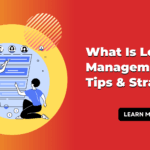The digital world demands that businesses of all sizes have a strong online presence.The reach and success of your brand can be greatly impacted by how visible your website is in search engine rankings. How to enhance SEO is a question many marketers and business owners ask as they strive to improve their website’s ranking on search engines like Google. SEO, or Search Engine Optimization, involves a range of techniques and strategies aimed at boosting your website’s visibility when people search for products or services related to your business. Here are eight practical tips to improve the SEO of a website, making it more search engine friendly and improving its chances to rank higher.
The importance of SEO

In today’s digital world, Search Engine Optimisation (SEO) is crucial and cannot be emphasised enough. SEO is the foundation of a successful digital marketing strategy, influencing how visible your website is in search engine results and, by extension, how easily potential customers can find your business online. Here’s a closer look at why SEO is so crucial:
- Increases Website Visibility and Traffic: At its core, SEO is about improving a website’s visibility in the organic (non-paid) search engine results. Effective SEO strategies ensure that your website appears higher in search results for relevant keywords and phrases. This increased visibility leads to more traffic since websites that appear on the first page of search engine results receive the majority of clicks.
- Enhances User Experience: SEO involves optimizing your website not just for search engines but for users as well. Google’s algorithms, for instance, favor websites that deliver a good user experience, including fast load times, mobile responsiveness, and easy navigation. By improving the user experience, you’re not only boosting your SEO but also increasing the likelihood that visitors will stay on your site longer, explore more pages, and take desired actions.
- Optimizes for Mobile: With the increasing prevalence of mobile internet usage, SEO also means optimizing your site for mobile devices. A mobile-friendly site contributes to a better user experience, which is a significant ranking factor. Furthermore, Google uses mobile-first indexing, meaning it predominantly uses the mobile version of the content for indexing and ranking.
- Facilitates Long-Term Growth: While PPC (pay-per-click) advertising can generate quick results, SEO is a long-term strategy. It takes time to build up your rankings, but once you’re there, you have a sustainable source of organic traffic. This long-term traffic can be a critical component of your business’s growth strategy, providing a steady influx of potential customers at a lower cost than paid advertising.
- Increases Conversion Rates: SEO-optimized websites load more quickly, are easier to read and browse, and work well across a wide range of device types, including tablets and smartphones. Simple-to-use websites have a higher chance of drawing in and retaining readers or visitors, which increases the likelihood that they will stick around and become devoted clients, subscribers, and repeat customers.
8 Tips to Improve Your Website’s SEO

A well-optimized website not only stands out in search engine results but also attracts quality traffic, which can be the difference between business growth and stagnation. If you’re wondering how to enhance SEO, you’re not alone. Many businesses struggle to navigate the ever-evolving landscape of SEO. Here, we explore eight actionable tips to improve the SEO of a website, driving both visibility and engagement.
1. Understand Your Website’s Core Vital Metrics
The journey to how to improve site SEO starts with a deep dive into your website’s core vital metrics. Google’s Core Web Vitals are pivotal in understanding user experience, focusing on load time, interactivity, and visual stability. Tools like Google PageSpeed Insights can offer valuable feedback on where your site stands and how you can optimize these vitals. Implementing lazy loading, optimizing images, and minimizing JavaScript can dramatically improve loading times, directly impacting your SEO scores.
2. Optimize for Mobile
With over half of global web traffic coming from mobile devices, your site’s mobile responsiveness is non-negotiable. Mobile optimization means ensuring your site is user-friendly on any device, from smartphones to tablets. This includes readable font sizes, accessible menus, and touch-friendly navigation elements. Google’s Mobile-Friendly Test tool can help you assess your site’s performance on mobile devices, providing insights on how to increase SEO for website by enhancing mobile usability.
3. Keyword Research
Keyword research is the cornerstone of effective SEO. By identifying the right keywords, such as how to increase SEO of website or how do you do SEO for a website, you can tailor your content to meet your audience’s needs. Use tools like Google Keyword Planner or SEMrush to discover keywords with high search volume but low competition. Including these long-tail keywords in your content can attract a more targeted audience, ready to engage with your offerings.
4. Quality Content
The adage “content is king” holds true in SEO. High-quality, engaging content that addresses your audience’s questions and needs can significantly improve the SEO of a website. Your content should not only be informative but also shareable and relevant to your audience. Regularly updated blogs, infographics, and videos can keep your site dynamic and encourage visitors to stay longer, reducing bounce rates and improving SEO rankings.
5. On-Page SEO
On-page SEO involves optimizing web page elements for specific keywords to improve search visibility. This includes strategic placement of keywords in title tags, meta descriptions, header tags, and throughout the content. For example, creating a compelling title tag that includes how to do SEO on website can improve your search ranking for that query. Moreover, optimizing images with descriptive, keyword-rich file names and alt text can further boost your SEO efforts.
6. Build Quality Backlinks
Backlinks, or inbound links from other websites, are crucial for SEO. They communicate to search engines that your material is reliable and important by acting as a vote of confidence from one website to another. Focus on building relationships with reputable sites in your industry to earn quality backlinks. Guest blogging, creating shareable infographics, and participating in industry forums can be effective strategies for building a strong backlink profile.
7. Utilize Social Media
While social media may not directly impact SEO rankings, it’s an invaluable tool for increasing your website’s exposure. Engaging with your audience on platforms like Twitter, Instagram, and Facebook can drive traffic to your site and increase brand awareness. Share your content on social media, encourage shares and interactions, and use social media advertising to reach a wider audience. This indirect approach can lead to more site visits, backlinks, and improved SEO over time.
8. Monitor Your SEO Progress
SEO is not a set-it-and-forget-it strategy; it requires ongoing monitoring and adjustment. Tools like Google Analytics and Google Search Console can offer insights into your website’s performance, from traffic sources and page views to bounce rate and conversion rates. Regularly reviewing these metrics can help you understand the effectiveness of your SEO strategies and make informed decisions on how to improve SEO of a website further.
Conculsion
The significance of SEO for Prashantji Services cannot be overstated. It is the backbone of digital visibility, driving organic traffic, enhancing user experience, and establishing credibility in the competitive digital marketplace. By prioritizing SEO, Prashantji Services not only ensures its website is accessible and engaging for its target audience but also lays a strong foundation for sustained growth and success in the digital era. This strategic focus on SEO is an essential investment in the company’s future, promising long-term rewards in visibility and customer engagement.








